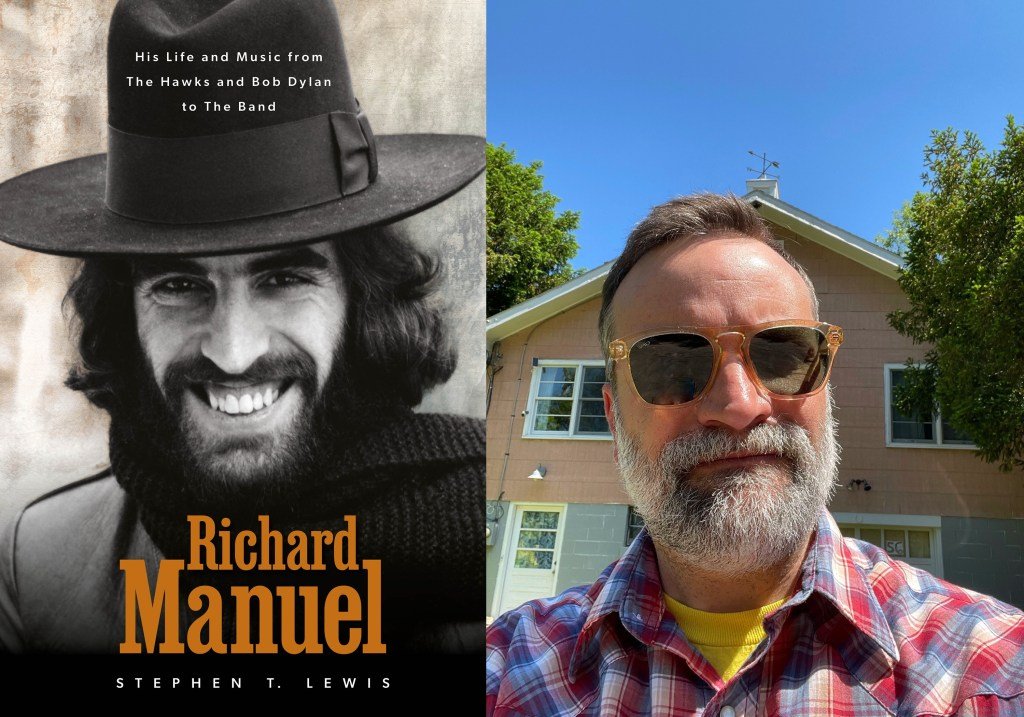Richard Manuel: The Heart and Soul of The Band – A New Perspective
Stephen T. Lewis, a devoted fan of The Band, has spent years immersed in the stories of its legendary members, particularly Levon Helm and Robbie Robertson. However, as he delved deeper into their narratives through concerts like "The Last Waltz" and various autobiographies, he sensed an essential piece of The Band’s history was missing—one belonging to Richard Manuel. In his new book, "Richard Manuel: His Life and Music, from the Hawks and Bob Dylan to The Band," Lewis aims to fill that void by focusing on the life and artistry of the singer-pianist from Stratford, Ontario, whose contributions have often been overshadowed.
Manuel’s journey began with his early experiences in Stratford, where he first tasted success with his teenage band, the Revols. He later joined Ronnie Hawkins and the Hawks, a pivotal moment that paved the way for the creation of The Band. Lewis’s biography not only chronicles these formative years but dives deep into Manuel’s relationships with his fellow bandmates and highlights his extraordinary blend of talent and charisma. Through meticulous research, including interviews with friends, family, and musical collaborators like Eric Clapton and Van Morrison, Lewis paints a portrait of Manuel that is both profound and poignant.
The epiphany for Lewis came after watching the documentary "Once Were Brothers: Robbie Robertson and The Band." Disappointed by the lack of Richard-centric material found within, he realized the importance of bringing focus to Manuel’s life and artistry. Initially considering a short article, Lewis soon recognized the depth of the subject matter and immersed himself in extensive archival research, ultimately resulting in a comprehensive biography that spans 400 pages. His aim? To shift the spotlight onto Manuel, offering readers a chance to discover or rediscover a remarkable musician whose own struggles mirrored those of his peers.
Richard Manuel is often remembered for his soulful lead vocals and expansive keyboard skills, but his life story encompasses far more than his musical accomplishments. Throughout the book, Lewis unravels the complexities of Manuel’s character, showcasing how his struggles with addiction impacted not only his career but also his relationships. Friends remembered Manuel not just as an extraordinary musician but as a warm-hearted individual who embodied both joy and vulnerability. Lewis captures this duality admirably, demonstrating how Manuel’s captivating performances were often interwoven with an ever-present shadow of personal turmoil and self-doubt.
For musicians like Bob Dylan, Manuel’s talent was undeniable. Interviews reveal how their relationship evolved over time, highlighting their shared humor and influences, which played a significant role in shaping their musical collaborations. Lewis emphasizes the unique synergy between Manuel’s emotive voice and Dylan’s songwriting, opening a dialogue about how the two artists challenged and inspired each other during a transformative period in music history. This exploration finally gives recognition to Manuel’s vocal contributions, elaborating on his influence not only within The Band but also in the broader musical landscape.
Ultimately, the biography addresses the tragedy of Manuel’s life, including his untimely death by suicide in 1986. Lewis approaches this sensitive subject with care, acknowledging both the darkness and the joy that characterized Manuel’s journey. The author expresses a sense of sorrow and inevitability as he reaches the conclusion of Manuel’s story, capturing how the joy embedded in Manuel’s musical legacy remains despite the shadows of addiction and mental health struggles that marred it.
Stephen T. Lewis’s "Richard Manuel: His Life and Music, from the Hawks and Bob Dylan to The Band" is not merely a biography; it is an exploration aimed at understanding the complexities of an iconic musician. With its deep dive into Richard Manuel’s life, this work encourages both long-time fans and newcomers to explore the profound impact of The Band’s music. By shining a spotlight on Manuel, Lewis not only fulfills a personal mission but enriches the narrative of an iconic group whose legacy continues to resonate with music lovers around the world.









